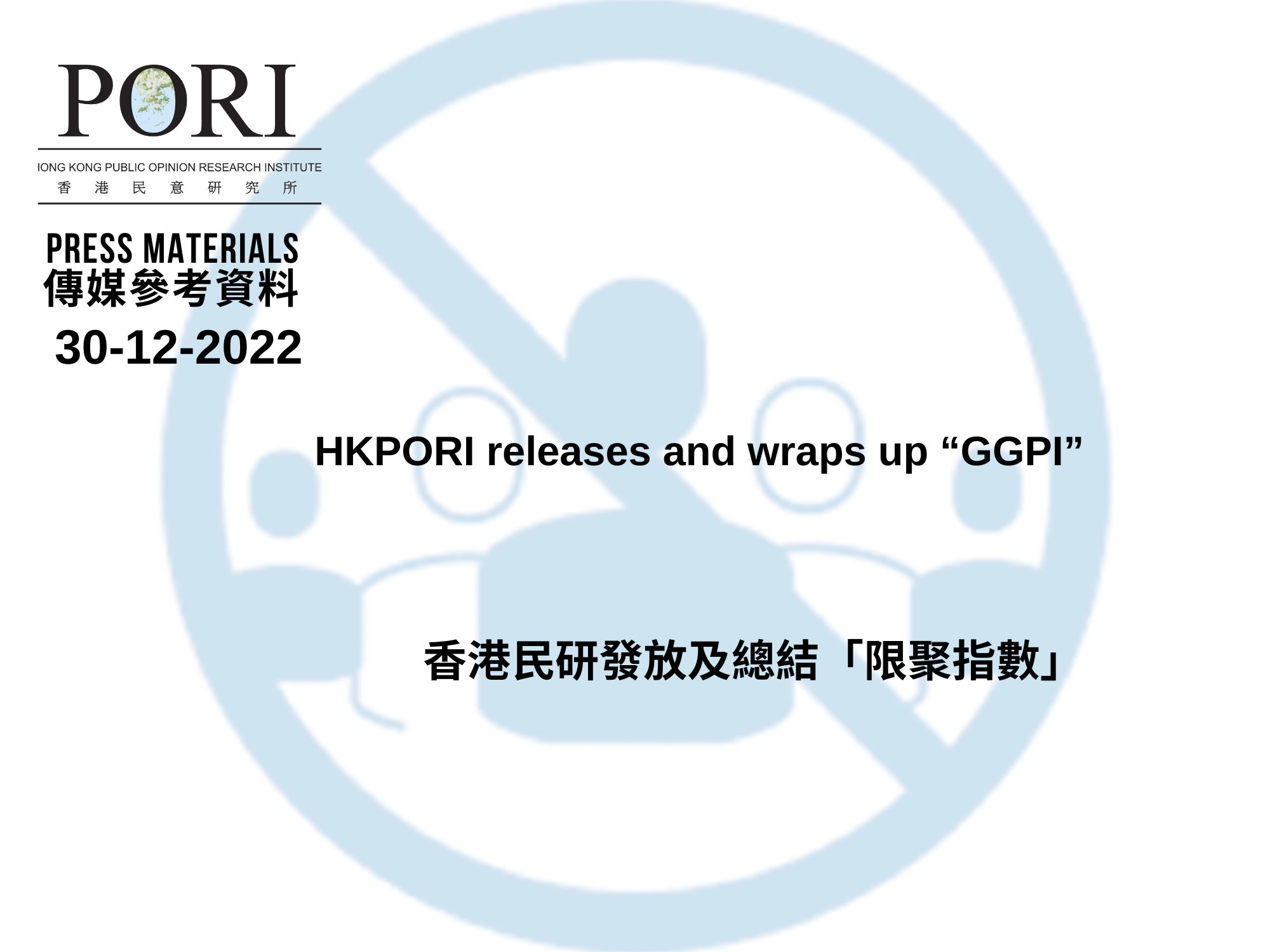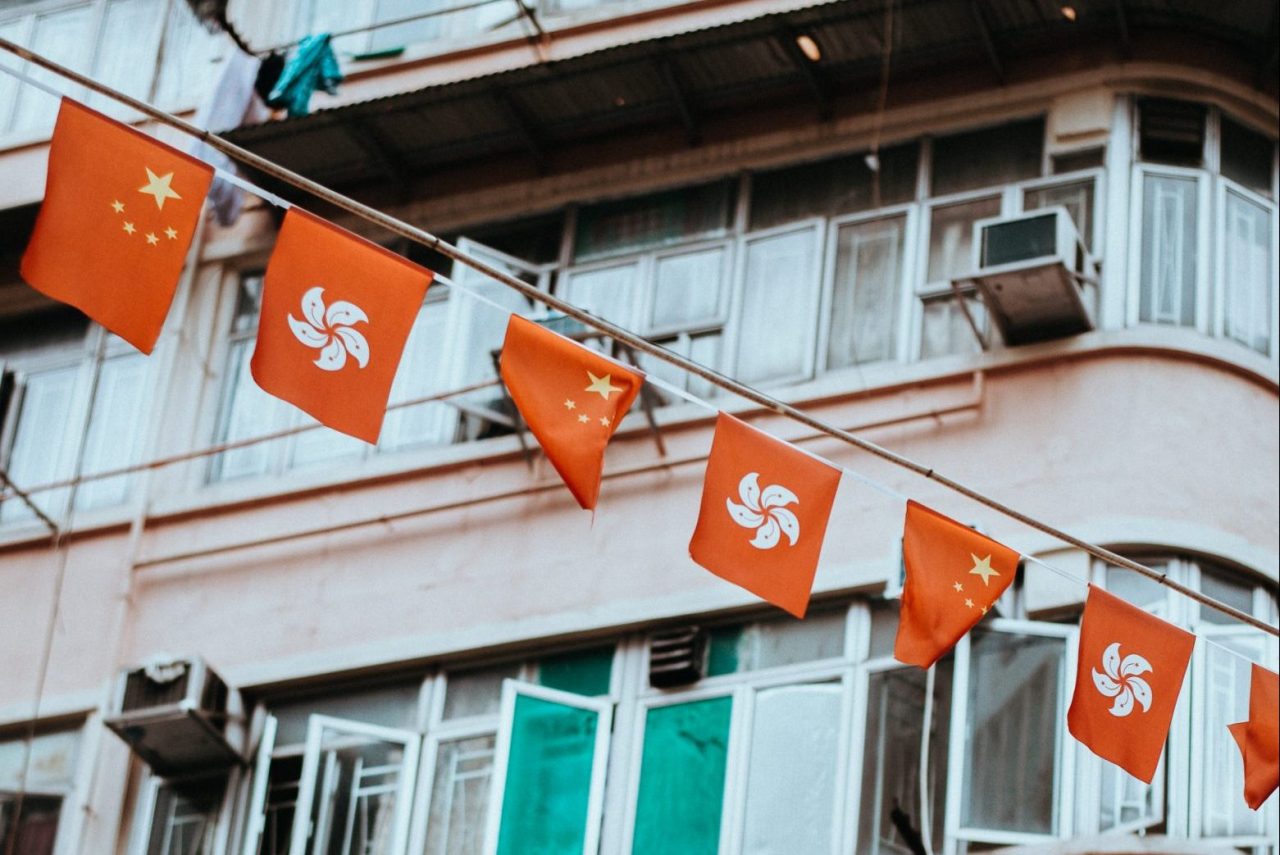Jun 22, 2021
Hong Kong Public Opinion Research Institute Press Conference – Press Materials
Detailed Findings
POP releases survey on Hong Kong people’s ethnic identity
Special Announcement
The predecessor of Hong Kong Public Opinion Program (HKPOP) was The Public Opinion Programme at The University of Hong Kong (HKUPOP). “POP” in this release can refer to HKPOP or its predecessor HKUPOP.
Abstract
POP successfully interviewed 1,008 Hong Kong residents by a random telephone survey conducted by real interviewers in early June. Our survey using independent rating questions that do not involve choosing one among identities show that whether in terms of strength rating, importance rating or identity index, the identity of “Hongkongers” continues to rank first, followed by “Asians”, “global citizens”, “members of the Chinese race”, “Chinese” and “citizens of the PRC”. Compared with half a year ago, the strength rating and identity index of “Hongkongers” have significantly dropped, while other figures have not registered significant changes. Meanwhile, the importance rating and identity index of “Asians” have both registered record lows since June 2016. If we use a dichotomy of “Hongkonger” versus “Chinese” identity and ask people to make a choice among four identities, namely, “Hongkongers”, “Chinese”, “Chinese in Hong Kong” and “Hongkongers in China”, whether in their narrow and broad senses, the proportions of people identifying themselves as “Hongkongers” outnumber those of “Chinese”. Compared with half a year ago, all figures have not registered significant changes. The effective response rate of the survey is 55.1%. The maximum sampling error of percentages is +/-4% and that of ratings is +/-2.9 at 95% confidence level.
Contact Information
| Date of survey | : | 7-10/6/2021 |
| Survey method | : | Random telephone survey conducted by real interviewers |
| Target population | : | Cantonese-speaking Hong Kong residents aged 18 or above |
| Sample size[1] | : | 1,008 (including 507 landline and 501 mobile samples) |
| Effective response rate | : | 55.1% |
| Sampling error[2] | : | Sampling error of percentages not more than +/-4% and that of ratings not more than +/-2.9 at 95% conf. level |
| Weighting method | : | Rim-weighted according to figures provided by the Census and Statistics Department. The gender-age distribution of the Hong Kong population came from “Mid-year population for 2020”, while the educational attainment (highest level attended) distribution and economic activity status distribution came from “Women and Men in Hong Kong – Key Statistics (2020 Edition)”. |
Latest Figures
Latest figures on Hong Kong people’s ratings on different identities are tabulated as follows:
| Date of survey | 17-20/6/19 | 4-10/12/19 | 1-4/6/20 | 7-10/12/20 | 7-10/6/21 | Latest change | |
| Sample size[3] | 607-692 | 596-677 | 575-690 | 529-648 | 586-703 | — | |
| Response rate | 58.7% | 62.8% | 64.3% | 70.0% | 55.1% | — | |
| Latest findings[4] | Finding | Finding | Finding | Finding | Finding & error | — | |
| Hongkongers | Strength rating | 8.61[5] | 8.51 | 8.57 | 8.26[5] | 7.78+/-0.20 | -0.47[5] |
| Importance rating | 8.46[5] | 8.42 | 8.34 | 7.89[5] | 7.80+/-0.20 | -0.09 | |
| Identity index | 84.6[5] | 82.6 | 83.1 | 79.5[5] | 76.3+/-1.9 | -3.3[5] | |
| Asians | Strength rating | 7.69[5] | 7.82 | 7.83 | 7.84 | 7.74+/-0.20 | -0.10 |
| Importance rating | 6.64[5] | 6.79 | 6.89 | 6.65 | 6.56+/-0.24 | -0.09 | |
| Identity index | 70.1[5] | 70.9 | 72.3 | 70.1 | 69.1+/-2.2 | -1.0 | |
| Global citizens | Strength rating | 6.89 | 7.06 | 6.93 | 6.97 | 6.79+/-0.24 | -0.17 |
| Importance rating | 6.53 | 6.63 | 6.64 | 6.53 | 6.45+/-0.26 | -0.07 | |
| Identity index | 66.2 | 66.7 | 66.6 | 66.5 | 64.8+/-2.2 | -1.7 | |
| Members of the Chinese race | Strength rating | 6.27[5] | 6.46 | 6.25 | 6.44 | 6.46+/-0.29 | +0.03 |
| Importance rating | 5.96[5] | 5.99 | 5.89 | 6.04 | 6.01+/-0.29 | -0.03 | |
| Identity index | 60.2[5] | 60.7 | 59.2 | 60.7 | 61.0+/-2.8 | +0.2 | |
| Chinese | Strength rating | 5.87[5] | 6.12 | 5.74 | 5.93 | 6.02+/-0.28 | +0.09 |
| Importance rating | 5.54[5] | 5.63 | 5.50 | 5.40 | 5.59+/-0.29 | +0.18 | |
| Identity index | 55.2[5] | 57.3 | 54.6 | 54.9 | 56.0+/-2.9 | +1.0 | |
| Citizens of the PRC |
Strength rating | 4.82[5] | 5.24[5] | 4.90 | 5.16 | 5.30+/-0.29 | +0.14 |
| Importance rating | 4.79[5] | 4.99 | 4.77 | 4.99 | 5.08+/-0.29 | +0.10 | |
| Identity index | 46.2[5] | 49.6 | 46.8 | 49.3 | 50.5+/-2.9 | +1.1 | |
Results of independent rating questions that do not involve choosing one among identities show that whether in terms of strength rating, importance rating or identity index, the identity of “Hongkongers” continues to rank first, followed by “Asians”, “global citizens”, “members of the Chinese race”, “Chinese” and “citizens of the PRC”. The strength ratings are 7.78, 7.74, 6.79, 6.46, 6.02 and 5.30 respectively, while the importance ratings are 7.80, 6.56, 6.45, 6.01, 5.59 and 5.08 respectively. Taking the geometric mean of the strength and importance ratings of each respondent and then multiply it by 10, we have an “identity index” between 0 and 100, with 0 meaning no feeling and 100 meaning extremely strong feeling. The latest figures are 76.3, 69.1, 64.8, 61.0, 56.0 and 50.5 respectively. Compared with half a year ago, the strength rating and identity index of “Hongkongers” have significantly dropped, while other figures have not registered significant changes. Meanwhile, the importance rating and identity index of “Asians” have both registered record lows since June 2016.
As for the results from the survey mode used for long on Hong Kong people’s sense of ethnic identity, latest figures are tabulated as follows:
| Date of survey | 17-20/6/19 | 4-10/12/19 | 1-4/6/20 | 7-10/12/20 | 7-10/6/21 | Latest change |
| Sample size[6] | 643 | 577 | 602 | 639 | 605 | — |
| Response rate | 58.7% | 62.8% | 64.3% | 70.0% | 55.1% | — |
| Latest findings | Finding | Finding | Finding | Finding | Finding & error | — |
| Identified as “Hongkongers” | 53%[7] | 55% | 50% | 44%[7] | 44+/-4% | — |
| Identified as “Chinese” | 11%[7] | 11% | 13% | 15% | 13+/-3% | -2% |
| Identified with a mixed identity of “Hongkongers” and “Chinese” | 36%[7] | 32% | 36% | 38% | 42+/-4% | +3% |
| Identified as “Hongkongers” in broad sense |
76%[7] | 78% | 75% | 69%[7] | 72+/-4% | +4% |
| Identified as “Chinese” in broad sense |
23%[7] | 21% | 24% | 29%[7] | 26+/-4% | -2% |
If we use a dichotomy of “Hongkonger” versus “Chinese” identity and ask people to make a choice among four identities, namely, “Hongkongers”, “Chinese”, “Chinese in Hong Kong” and “Hongkongers in China”, 44% identified themselves as “Hongkongers”, 13% as “Chinese”, 13% as “Chinese in Hong Kong” and 28% as “Hongkongers in China”. In other words, 72% identified themselves as “Hongkongers” in a broad sense (i.e. either as “Hongkongers” or “Hongkongers in China”), 26% identified themselves as “Chinese” in a broad sense (i.e. either as “Chinese” or “Chinese in Hong Kong”), while 42% chose a mixed identity of “Hongkongers” and “Chinese” (i.e. either as “Chinese in Hong Kong” or “Hongkongers in China”). Whether in their narrow and broad senses, the proportions of people identifying themselves as “Hongkongers” outnumber those of “Chinese”. Compared with half a year ago, all the above figures have not registered significant changes.
Opinion Daily
In 2007, POP started collaborating with Wisers Information Limited whereby Wisers supplies to POP a record of significant events of that day according to the research method designed by POP. These daily entries would then become “Opinion Daily” after they are verified by POP.
For the polling items covered in this press release, the previous survey was conducted from 7 to 10 December, 2020 while this survey was conducted from 7 to 10 June, 2021. During this period, herewith the significant events selected from counting newspaper headlines and commentaries on a daily basis and covered by at least 25% of the local newspaper articles. Readers can make their own judgment if these significant events have any impacts to different polling figures.
| 10/6/21 | NPCSC passes “Anti-Foreign Sanctions Law”. |
| 4/6/21 | Police locks down Victoria Park to prevent June 4 vigil. |
| 31/5/21 | The government plans to restrict unvaccinated persons from entering various premises. |
| 30/5/21 | The government and the business sector launch initiatives to encourage vaccination. |
| 28/5/21 | 10 famous democrats are convicted and jailed for 10.1 assembly. |
| 27/5/21 | The Legislative Council passes amendments to Hong Kong’s electoral system. |
| 25/5/21 | The government announces it will arrange vaccination for holders of the Exit-entry Permit and refugees. |
| 21/5/21 | Some universities and corporations launch initiatives to encourage vaccination. |
| 15/5/21 | Taiwan confirms 180 local infections with coronavirus disease. |
| 14/5/21 | The government freezes Jimmy Lai’s personal assets under the national security law. |
| 11/5/21 | The government purchases the broadcasting rights of the Tokyo Olympics for five television stations. |
| 2/5/21 | The government plans to require foreign domestic helpers to be vaccinated to come to Hong Kong or renew contracts. |
| 30/4/21 | The government imposes mandatory testing for all foreign domestic helpers in Hong Kong. |
| 27/4/21 | The government relaxes some anti-epidemic measures with “vaccine bubble” as the basis. |
| 26/4/21 | The governments of Hong Kong and Singapore announce that Air Travel Bubble arrangement will begin on May 26. |
| 23/4/21 | Former member of Hong Kong National Front is jailed for 12 years for possessing explosives. |
| 16/4/21 | 9 famous democrats are convicted and jailed for 8.18 assembly. |
| 15/4/21 | The government holds “National Security Education Day”. |
| 13/4/21 | The government will make law to ban public call to not vote or cast blank or spoilt votes. |
| 11/4/21 | Four stored value facilities will assist in the distribution of electronic consumption vouchers. |
| 10/4/21 | Alibaba is fined RMB 18.2 billion for violating anti-monopoly law. |
| 30/3/21 | NPCSC passes amendments to the Basic Law to amend Hong Kong’s electoral system. |
| 25/3/21 | Chinese consumers start a boycott campaign against international brands refusing to use Xinjiang cottons. |
| 19/3/21 | China and US officials meet in Alaska. |
| 17/3/21 | The Hong Kong and Macau Affairs Office and the Liaison Office hold seminars on amending Hong Kong’s electoral system. |
| 11/3/21 | The National People’s Congress passes bill on amending Hong Kong’s electoral system. |
| 1/3/21 | The court reviews 47 democrats’ bail application overnight. |
| 28/2/21 | 47 democrats are charged with “conspiracy to commit subversion”. |
| 23/2/21 | The government proposes amendments to laws to regulate oath-taking by public officers, compiling a negative list of behaviours, violators of which will be disqualified. |
| 22/2/21 | Xia Baolong says the Central Government will change the electoral system in Hong Kong to make sure it will be “patriots ruling Hong Kong”. |
| 19/2/21 | The government releases the Governance and Management of RTHK Review Report, and announces that Li Pak-chuen will replace Leung Ka-wing as the Director of Broadcasting. |
| 18/2/21 | Sinovac vaccines arrive in Hong Kong. The government announces the vaccination plan. |
| 16/2/21 | The government lifts the dine-in ban during nighttime, but customers will need to use the “LeaveHomeSafe” app or register. |
| 9/2/21 | The Court of Final Appeal sets aside the High Court’s decision to grant bail to Jimmy Lai. |
| 29/1/21 | The British government announces details of migration using BNO visa; the Chinese and Hong Kong governments announce they will no longer recognise BNO passports. |
| 27/1/21 | Carrie Lam reports to Xi Jinping on her work via video conferencing. |
| 20/1/21 | Queen’s Counsel David Perry steps down as prosecutor in an assembly case involving democrats. |
| 13/1/21 | Brazil authority announces that the general efficacy of Sinovac vaccine is 50.4%. |
| 7/1/21 | The US Congress confirms Biden’s victory in presidential election. Trump supporters break into the US Congress and conflicts occur. |
| 6/1/21 | Police arrests 53 democrats involved in the pro-democracy primaries who allegedly violated the national security law. |
| 5/1/21 | Geoffrey Ma says details and justifications are needed to call for judicial reform. |
| 31/12/20 | The Court of Final Appeal grants leave to appeal to the Department of Justice. Jimmy Lai is remanded in custody. |
| 30/12/20 | Ten among the 12 Hong Kong people case are sentenced to 7 months to 3 years in prison, while two minors are transferred to Hong Kong. |
| 25/12/20 | Jimmy Lai is granted bail, but barred from leaving home, giving interviews and publishing articles. |
| 23/12/20 | The government sets up indemnity fund for vaccine and lets citizens choose which type of vaccine to take. |
| 21/12/20 | New strains of COVID-19 virus are found in the UK. The Hong Kong government bans passenger flights from the UK. |
| 12/12/20 | Jimmy Lai is additionally charged with “collusion with a foreign country or with external elements to endanger national security”. |
| 8/12/20 | The government tightens anti-epidemic measures again and empower authorities to impose lockdown and mandatory testing. |
Data Analysis
Our survey using independent rating questions that do not involve choosing one among identities show that whether in terms of strength rating, importance rating or identity index, the identity of “Hongkongers” continues to rank first, followed by “Asians”, “global citizens”, “members of the Chinese race”, “Chinese” and “citizens of the PRC”. Compared with half a year ago, the strength rating and identity index of “Hongkongers” have significantly dropped, while other figures have not registered significant changes. Meanwhile, the importance rating and identity index of “Asians” have both registered record lows since June 2016.
If we use a dichotomy of “Hongkonger” versus “Chinese” identity and ask people to make a choice among four identities, namely, “Hongkongers”, “Chinese”, “Chinese in Hong Kong” and “Hongkongers in China”, whether in their narrow and broad senses, the proportions of people identifying themselves as “Hongkongers” outnumber those of “Chinese”. Compared with half a year ago, all figures have not registered significant changes.


